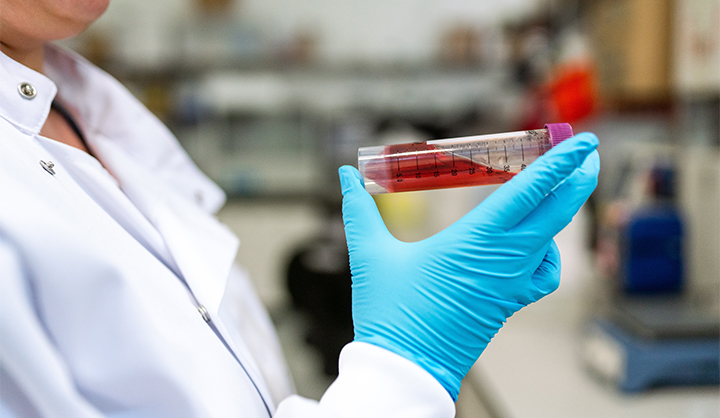York cancer research to benefit from major NIHR grant
Posted on 14 October 2022

The Leeds Biomedical Research Centre (BRC) is to receive £19.8m over five years to expand the areas of research from musculoskeletal to include cancer, cardiovascular disease and infection. This includes a new stream of research into blood cancer, which has been added in partnership with scientists at York.
The York collaboration will see researchers from the York Biomedical Research Institute come together to work with colleagues in Leeds to investigate how to develop more personalised treatment strategies for people with cancer.
Patient need
Professor Eve Roman, Director of the Epidemiology and Cancer Statistics Group at the University of York, said: "We are delighted to be part of this exciting new NIHR BRC venture, which marks a step change in ensuring research follows patient need.
"Our participation formalises the strong regional collaborations that exist across haemato-oncology, providing an effective setting within which to further develop and expand. The University of York has enjoyed a long and successful relationship with both Leeds Teaching Hospitals NHS Trust and the University of Leeds; together with the Hull York Medical School (HYMS).
Strong partnership
Philip Conaghan, Director of the new NIHR Leeds BRC and Professor of Musculoskeletal Medicine in the University of Leeds’ School of Medicine, said: “This new BRC is an exciting step-change, reflecting the joint ambition of the strong Leeds Teaching Hospitals NHS Trust and University of Leeds partnership, to address urgent clinical challenges of an ageing population, with the reality that patients do not live with just one disease but multiple conditions.
“Our vision is to drive impactful research led by patient need, with patients and the public at the heart of all activities. This can make a meaningful difference to patients and the public, particularly those who are most at need.
"I am also delighted to formalise our academic partnership with the University of York, bringing their expertise in haematology into the new BRC.”
Professor Jeremy Mottram, Director of the York Biomedical Research Institute, added: “The key role played by York in this multi-institute NIHR partnership, is testament to the strength of haematology research across our University, and further indication of how combining fundamental and applied biomedical research can impact patients.”
The National Institute for Health and Care Research (NIHR) has awarded nearly £800 million to 20 new Biomedical Research Centres across England, to translate scientific discoveries into new treatments, diagnostic tests and medical technologies to improve patients’ lives.
Notes to editors:
For more information see:
